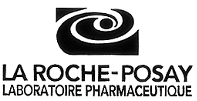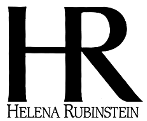| Jerusalem Post, June 15, 1999
http://www.jpost.com/com/Archive/15.Jun.1999/Business/Article-5.html.
By ELI GRONER
JERUSALEM (June 15) - The new $10,000 scholarships that L'Oreal
will be offering here annually stem from what company Vice
President Francois Vachey describes as a "desire to do
something to commemorate Israel's 50th birthday."
Vachey refers to L'Oreal's Migdal Ha'emek-based operation,
Interbeauty (which employs close to 400), as the company's
"Middle Eastern hub" and adds that he has "fallen
in love" with the country. He sees his local employees
as entrepreneurial, passionate, and very open-minded.
But according to some, L'Oreal has a checkered past highlighted
by a surrender to the Arab boycott years ago. In 1994, two
US congressmen and a couple of Jewish groups called for a
boycott of L'Oreal because of the French company's "compliance
with the Arab boycott of Israel."
The Washington Post reported at the time that in 1986, L'Oreal
wrote to the Arab League's boycott office in Damascus that
it had halted cosmetics production in Israel by its recently
acquired Helena Rubinstein subsidiary, eliminated the company
name worldwide, removed its long-standing directors, and "complied
with all the regulations of the boycott of Israel."
To the rest of the world, L'Oreal insisted that it never
complied with the Arab boycott and that it continued to sell
cosmetics in Israel.
The tone of the company's letters to the Arab League was
"not very nice," a L'Oreal official was quoted by
the Post as saying, but the letters were "only an appearance.
We have not discriminated against anybody."
In 1995, L'Oreal agreed to pay more than $1.4 million to
settle US Commerce Department charges that it cooperated with
the boycott.
"L'Oreal has been here for close to 20 years and L'Oreal
never stopped marketing in Israel," he insists. "L'Oreal
products were here long before those of most other major companies.
In fact, we were one of the first major European companies
to invest so heavily in Israel."
What about the US Justice Department's 1991 investigation
into L'Oreal executive Jacques Correze? (Before the probe
ended, Correze resigned and then died the same day. He had
been undergoing cancer treatment.)
L'Oreal was unaware of this person's past and the Justice
Department never even hinted that L'Oreal, as a company, was
guilty in any way, shape, or form. This episode is contrary
to our philosophy, which encourages multinational and religious
coexistence. In fact, I would guess that approximately half
of L'Oreal's board of directors is Jewish, but we never noticed
that. I must emphasize that there has never been an antisemitic
policy at L'Oreal.
|




